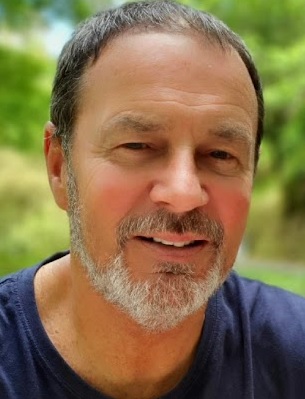
Really big things can happen because of infinitesimal things.
Years ago a close friend suddenly stopped talking to me and I couldn’t understand why, even though I made many overtures to meet up.
Then, a mutual friend told me that my friend believed I’d “snobbed him”. Apparently, he’d waved to me from his car and I’d looked straight at him and looked away.
Ouch. I’d probably have taken offence as well, but I can categorically say that if I’d seen him wave to me, I’d have acknowledged him and waved back.
But it got me wondering, how often do we glance at a passing car and maybe a windscreen reflection prevents us seeing the person inside? Maybe it happened here and that small chance mis-encounter created ripples that completely changed the course of a good friendship.
So, why are we victims (and beneficiaries) of infinitesimal things that become something bigger? Where would we be without atoms and molecules; and life on earth must have started with a single cell or some innocuous mix of chemicals. Without that small thing we would never have had elephants, giant trees, axolotls, pet dogs, and Mrs Jones around the corner in Iti Street.
We see small things become big things, every day. Life is littered with tiny moments that are based entirely on chance. Consider, if Mr Hitler hadn’t hung out at the die Kneipe and lingering over yet another Dunkles Lagar, he would never have spotted Mrs Hitler (looking lovely) and maybe we all could have been spared the Second World War.
Of course the whole idea that our lives are navigated by a series of small accidents was immortalised in the movie Sliding Doors where a young woman’s desperate rush to catch a train became a split fantasy between the woman catching the train, and not catching the train. The difference was a split second but the parallel course her life took was dramatically different.
Business and life coaches will tell us that luck is what we make it. Yes, but to the extent that luck and chance play a fairly hefty role in the life we get to make for ourselves.
Thinking more about the former friend and my failure to acknowledge him, my unintended actions spawned a reaction that seems out-of-proportion. In that regard I don’t just point the bone at my former friend, because that ignores the fact that most of us are full of prejudices and preconceptions that regularly turn molehills into mountains.
An example arose in the British media recently where it was reported that new prime minister Rishi Sunak alighted from his limo to briefly help out at a homeless shelter. Keep in mind that Sunak is a life-long Conservative who wears £3500 Henry Herbert suits and has the look and well-earned reputation of an out-of-touch multi-millionaire, which is what he is.
Needless to say that I was among the outraged when I read that Sunak had asked Dean, a homeless man at the shelter, whether he was in business and wanted to get into the finance industry. What a preposterous, pompous git, I thought, along with most of the liberal British media. Fancy asking a homeless man if he wanted to get into the finance industry?
But back the truck up. Were my prejudices and preconceptions about people like Sunak giving me my own infinitesimal “wave from the car” moment? And did I have all the facts to approximate a reasonable view?
Here’s what actually happened, as reported in The Guardian:
“Are you sorting the economy out?” Dean asked Sunak.
“Well, that is exactly what I am trying to do,” the PM replied while serving him a very full English breakfast. By now they were on first name terms.
Dean: “Best for business.”
Sunak: “Do you have . . . do you work in business? Do you want some fruit?”
Dean: “No, I’m homeless. I am actually a homeless person. But I am interested in business.”
Sunak: “Yeah? What kind of business?”
Dean: “I like finance. It’s good for the city. When finance and stuff does well, we all do well in London.”
Sunak: “Yeah, that’s absolutely right. So I used to work in finance actually.”
Dean: “Yeah, I heard. Ex-investment banker.”
Sunak: “Is that something you’d like to get into?”
Perhaps I shouldn’t have made a mountain out of a molehill.
 You can contact Fraser here.
You can contact Fraser here.
Fraser Carson is the founding partner of Wellington-based Flightdec.com. Flightdec’s kaupapa is to challenge the status quo of the internet to give access to more reliable and valuable citizen generated content, and to improve connectivity and collaboration.
Flightdec websites include: KnowThis.nz, Issues.co.nz and Inhub.org.nz.
OTHER POSTS
LATEST POSTS
- Who was our first knight?
- Oz still a baking wizard after 42 years
- Alice finds way to make great dough
- Carl Lutz – farmer who loved the land, and Fordsons
- Money for the expressway – for whom does the bell toll?
- Caring for all creatures great and small
- Dave morphs into Ōtaki’s expert mower man
- Arthur saw nature ‘with eyes of admiration’
- Ōtaki-Māori Racing Club ‘focused on mana and mauri’
- If you’re not there you won’t know what’s going on
- Ōtaki abuzz with film festival - Ōtaki Today
- Hall helps to connect and build community
- Diversity a key component of CWS success
- Fear breeding fear, fear and more fear
- Plenty of help organisations in times of need
- Regan keeps Mac Engineering in the family
- Poor official communications fuel misinformation
- Cultural infrastructure could be our saviour
- Four-storey blocks coming as developments fast-tracked
- The world’s therapist offers little hope for global ills
